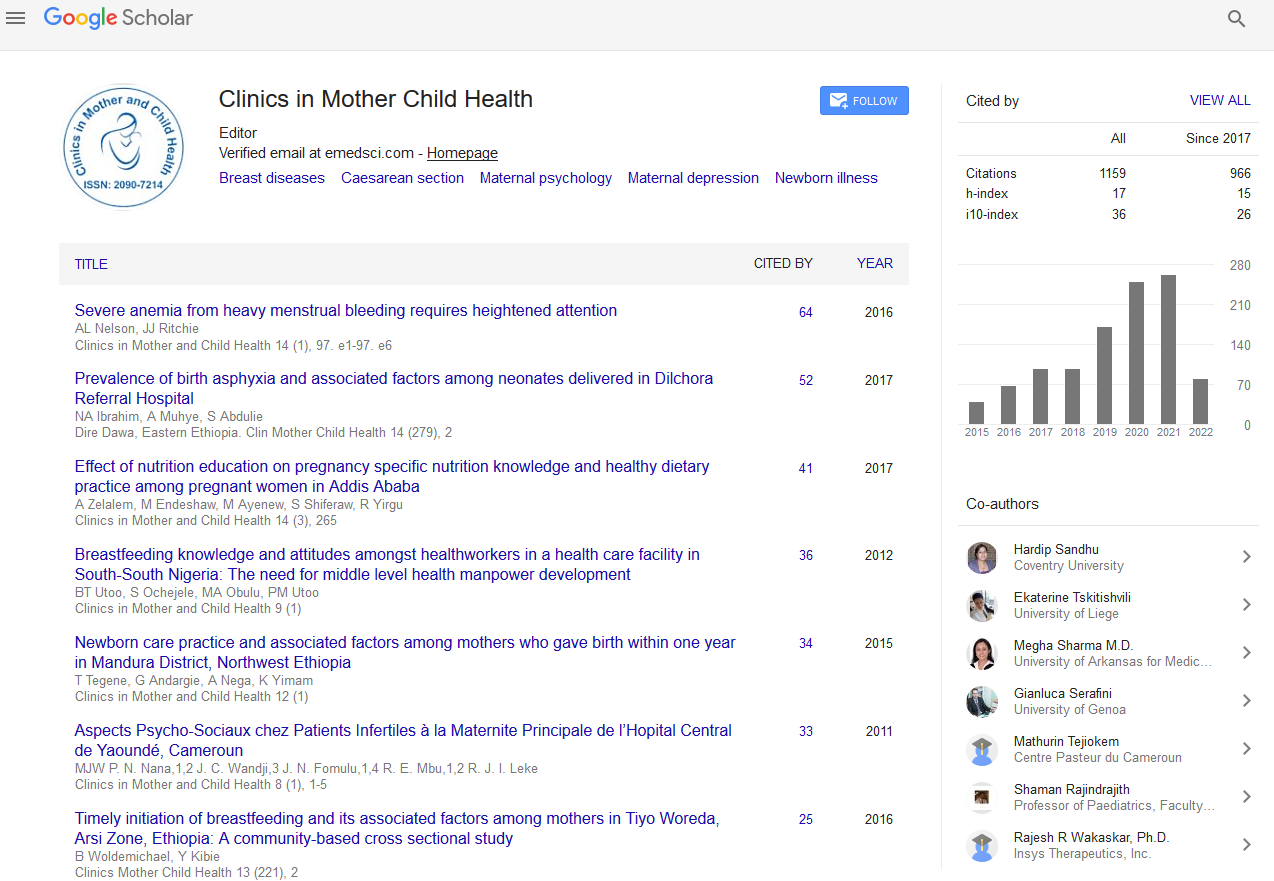Indexed In
- Genamics JournalSeek
- RefSeek
- Hamdard University
- EBSCO A-Z
- Publons
- Geneva Foundation for Medical Education and Research
- Euro Pub
- Google Scholar
Useful Links
Share This Page
Journal Flyer

Open Access Journals
- Agri and Aquaculture
- Biochemistry
- Bioinformatics & Systems Biology
- Business & Management
- Chemistry
- Clinical Sciences
- Engineering
- Food & Nutrition
- General Science
- Genetics & Molecular Biology
- Immunology & Microbiology
- Medical Sciences
- Neuroscience & Psychology
- Nursing & Health Care
- Pharmaceutical Sciences
Abstract
Postpartum Depression, Child Caring Behavior of Mothers and Developmental Milestones of Their Children: A Correlational Mother-Child Dyad Study
Kheirabadi GR, Sadri S and Molaeinezhd M
Background: Most of the studies conducted about cognitive side effect of mental disorders during pregnancy and the puerperum, have done in developed countries, mainly attended to psychological rather than somatic side effects. The recent studies showed that depression depend on its, severity can cause various degree of dysfunction in childbearing and house holding domain of mentally ill women’s lives.
Objective: This study was aimed to determine the relation of maternal depression during post-partum period with childbearing behavior and somatic health milestones of their children.
Method: A cross sectional woman-child dyad study was conducted among 6628 women with a 2-12 months-old child in rural area of Isfahan province. Data gathered via demographic questionnaire, Persian version of Beck depressive scale and growth indexes of studied children; measured with related instruments in primary health care units. Collected data analyzed via SPSS software version 22 and descriptive and analytic tests especially correlation tests.
Results: Multivariable analysis indicated that none of the weight-for-length, head circumference of child and breastfeeding behavior of mother had significantly affected by the maternal depression score (p>0.05) but maternal health behavior, and depression score had inversely correlated (r=-0.065, p<0.001). There was also not significant correlation between maternal depression grade and child’s age, before 12 months.
Conclusions: Postpartum depression (PPD) impairs child caring behaviors of the afflicted mothers. Preventive approach of early detection and treatment of PPD will help achieve best practice for preserving of their children’s normal development and prevention of adverse health outcomes in them.


